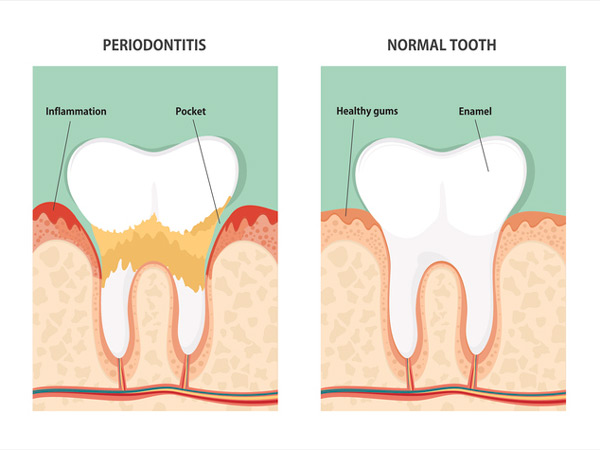Periodontal Treatment We all have bacteria in our mouths. It is there all the time. When it stays at healthy levels it actually is a great benefit to our mouths. It helps to break down food debris and aids in digestion. When those bacteria are not kept in check, however, they can become a catalyst for periodontal disease, breaking down the soft and hard tissues of the mouth. Those patients who suspect they might have the start of periodontal disease or who have recently been diagnosed, should schedule an appointment to come into our Avery Dental Center office for an evaluation. We all have bacteria in our mouths. It is there all the time. When it stays at healthy levels it actually is a great benefit to our mouths. It helps to break down food debris and aids in digestion. When those bacteria are not kept in check, however, they can become a catalyst for periodontal disease, breaking down the soft and hard tissues of the mouth. Those patients who suspect they might have the start of periodontal disease or who have recently been diagnosed, should schedule an appointment to come into our Avery Dental Center office for an evaluation. Non Surgical Treatments for Gum DiseaseSurgical intervention is more common than non-surgical intervention but if the disease is caught early enough, non-surgical treatments are viable. AntibioticsOne of the most common non-surgical treatments applied to the earliest stage of gum disease are antibiotics. Due to gum disease not being viral but rather bacterial in nature, antibiotics can offer some relief. For dental applications, antibiotics can come in either a topical cream which can be applied to the affected area, or in a pill. Root Planing and Root ScalingTwo other techniques that are non-surgical are root planing and root scaling. Root scaling is scraping off the plaque, tartar, and bacteria which clings to the root structure of the tooth below the gum line. Another technique is called root planing. This smooths out any uneven sections of the root surface to make sure bacteria cannot cling to the root. Surgical Treatments for Gum DiseaseWhen the non-surgical options will not work or if the disease has progressed too far for them to be effective, the patient will have to go with surgical treatment options. GingivectomyA gingivectomy is one of the most common of these surgeries. It involves removing the diseased portion of gum tissue. Gingivectomies are necessary to prevent bacteria pockets from forming under the gum line, affecting the tissues on a deeper level. Removing this tissue also makes oral hygiene maintenance much easier. Pocket Reduction SurgeryThere is also pocket reduction surgery which shrinks the pockets where the gums have begun to recede. This entails folding the gum tissue in a way that allows for a deeper cleaning procedure. Instead of removing the gum tissue, pocket reduction surgery has our periodontist lifting it away from your teeth. Once the pockets are exposed, we can clean them. Bone GraftingMany patients with periodontitis will experience bone loss if the condition is not treated soon enough. In times of bone loss, we can replace the tissue with various types of bone grafts. This provides a fuller, more natural look, but it also protects your oral health as well. Periodontal Disease AssessmentSome patients are more comfortable than others at performing self-evaluations. It is an important aspect of oral cavity health. Every patient should perform them each time they brush and floss. It can lead to the early detection of not only periodontal disease but other complications of the oral cavity. Patients should make note of any changes in the color of their gums, any odd tissue growths or odd-colored patches on the tongue, or discharge at the gumline. Any patient struggling with gum disease should come see us at Avery Dental Center. We can also be reached by phone at this number (380) 257-1684. |